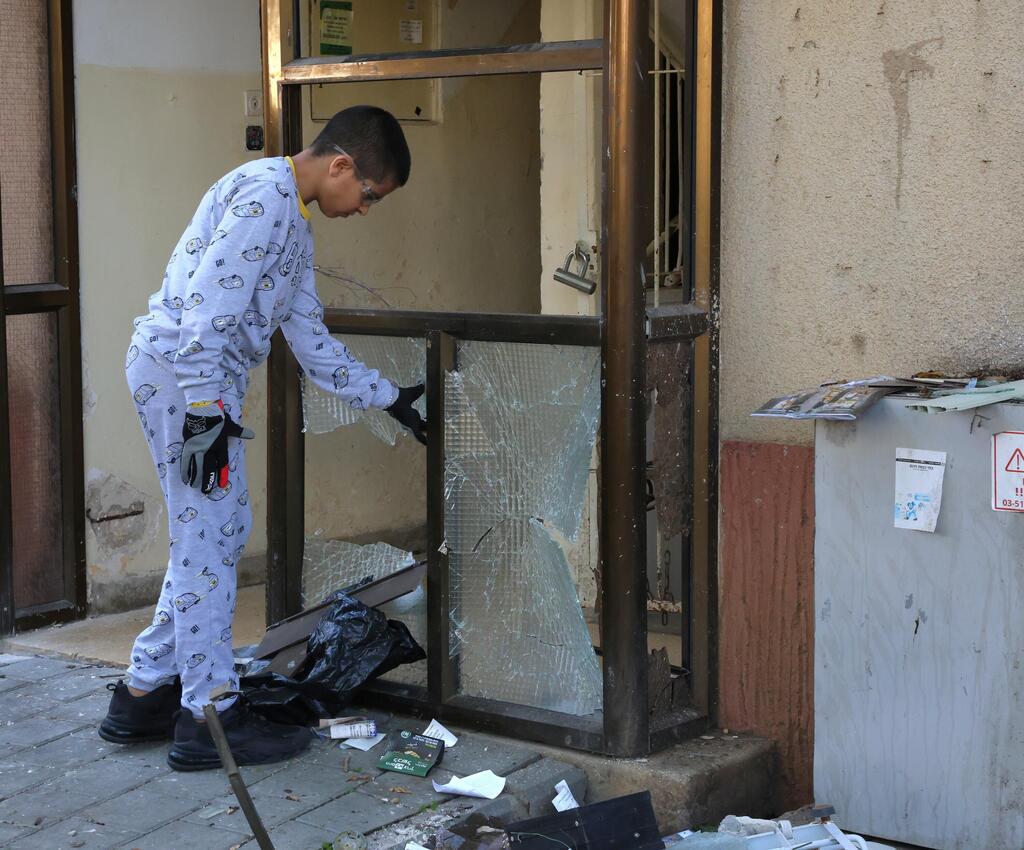Getting your Trinity Audio player ready...
This isn’t a proper state – it’s a terrorist organization that has seized control of half a country. Ranked 183rd out of 191 countries, Yemen has an annual per capita income of just $477 (compared to $3,372 in the Palestinian territories). Around two-thirds of its population – roughly 30 million people – live with food insecurity or outright hunger.
Under Hamas rule, Gaza would seem like paradise compared to Yemen. In the civil war that has ravaged the country for nearly a decade, close to half a million people have lost their lives. This follows a grim pattern seen across Lebanon, Syria, Gaza, Somalia, Sudan and elsewhere: Whenever jihad, whether Shiite or Sunni, rises, the inevitable outcome is destruction, devastation and bloodshed.
Backed by Iran, this entity has taken control of the Bab el-Mandeb Strait, a critical choke point for international trade. Houthis, who dominate northern Yemen, have no interest in fostering prosperity or welfare. Millions of Yemenis go hungry, but the ruling faction wields Iranian-supplied military power that disrupts global trade routes and fires ballistic missiles toward Israel. Their motto is explicit: "Death to America, Death to Israel, Curse upon the Jews, Victory to Islam." In many respects, Yemen mirrors Lebanon: a bankrupt, failing state where a terrorist organization consolidates its grip through Iranian support.
Saudi Arabia and the UAE sought to prevent the Houthis from taking over Yemen. On paper, these nations are far stronger. In practice, the Houthis’ endurance seemed unshakable. They were struck repeatedly, their infrastructure bombed into rubble – and yet, they endured. First the UAE, then Saudi Arabia, chose to retreat. From a strategic perspective, this amounted to a clear victory for Iran.
Strikes on Houthi terrorist regime targets in Yemen
(Video: IDF)
The Houthi-controlled Yemen officially declared war on Israel on October 31, 2023. Israel has targeted the Houthis three times with devastating strikes, causing significant damage. Yet, the Houthis remain undeterred. Saudi Arabia, too, has walked this path. Relentless Saudi airstrikes rained down on Yemen, and the Houthis responded by attacking Saudi oil fields. The Yemeni people have suffered immeasurably and continue to do so, but this has no bearing on Houthi leadership. Instead of being deterred, the Houthis were the ones to deter their Saudi foes.
This is worth reflecting on. Being jolted awake by a missile in the middle of the night is unnerving. The damage caused to homes during the attack on Friday night is no small matter. Yet, for every UAV or missile launched at Israel, the retaliatory damage inflicted on the Houthis is substantially more pronounced. To understand their persistence, one must grasp the Houthi mindset, which mirrors that of other jihadist groups: Causing even minor harm to Israel is worth the immense pain they themselves endure.
This may not sound politically correct, but it must be said: their actions are driven by a sense of "honor." Not the human dignity we speak of in the West, but a raw, masculine sense of "honor." It’s the same twisted logic that drives a brother to murder his sister for supposedly tarnishing the family’s name. He knows he’ll spend years, perhaps his entire life, in prison, but to him, honor is far more important.
HOUTHI REBELS SEIZE ISRAELI-LINKED CARGO SHIP IN RED SEA
(Video: ILTV)
This is precisely the Houthi rationale. Israeli retaliation does not deter them; harming Israel fuels their sense of honor. When Yahya Sinwar orchestrated the October 7 attacks, he did not genuinely believe he could defeat Israel. He knew Israel would respond with overwhelming force. But the anticipated devastation didn’t dissuade him.
The same logic applies to Hassan Nasrallah. When he kidnapped Israeli soldiers Eldad Regev and Ehud Goldwasser, he already knew, based on Israel’s response during the Second Lebanon War, that the reaction would be severe. While he later admitted that had he known the scale of the response, he might not have acted, his actions speak louder than his words. After all, in the heat of the moment on October 8, honor outweighed caution.
Get the Ynetnews app on your smartphone: Google Play: https://bit.ly/4eJ37pE | Apple App Store: https://bit.ly/3ZL7iNv
While pointed attacks on a Yemeni port might grant us momentary relief, it does little to answer the actual source of our sleepless nights. Lest we forget, Israeli Air Force jets aren't the only threat the Houthis have faced. The Saudis, Americans and British have all brandished their idea of aerial punishment, and the Jewish state itself has done so more than once. And yet, the Houthi war machine rumbles on.
There are two ways to neutralize the Houthi threat, and the two approaches complement rather than contradict each other. The first is to negotiate a deal for the release of hostages and establish a cease-fire. Unlike Hezbollah, the Houthis have shown they keep their word and have made it clear they won’t stop until the war ends.
The second approach is to strike at the source—Iran. While Iran’s "ring of fire" has been weakened by significant blows to Hezbollah and the collapse of Assad’s regime in Syria, the driving force behind this axis of evil isn’t rooted in rational interests. It’s ideological at its core. Their threats to destroy Israel aren’t mere bravado – they mean every word. These threats will only cease – or at least be reduced to hollow rhetoric – if Iran itself suffers a devastating blow.
The Houthis are a nuisance, not an existential threat. Their goal is to drag Israel into a war of attrition, assuming Israel won’t take action where the Saudis hesitated. Given the current circumstances, Iran is the far greater danger – and the far more vulnerable target. That’s where the focus should be.






